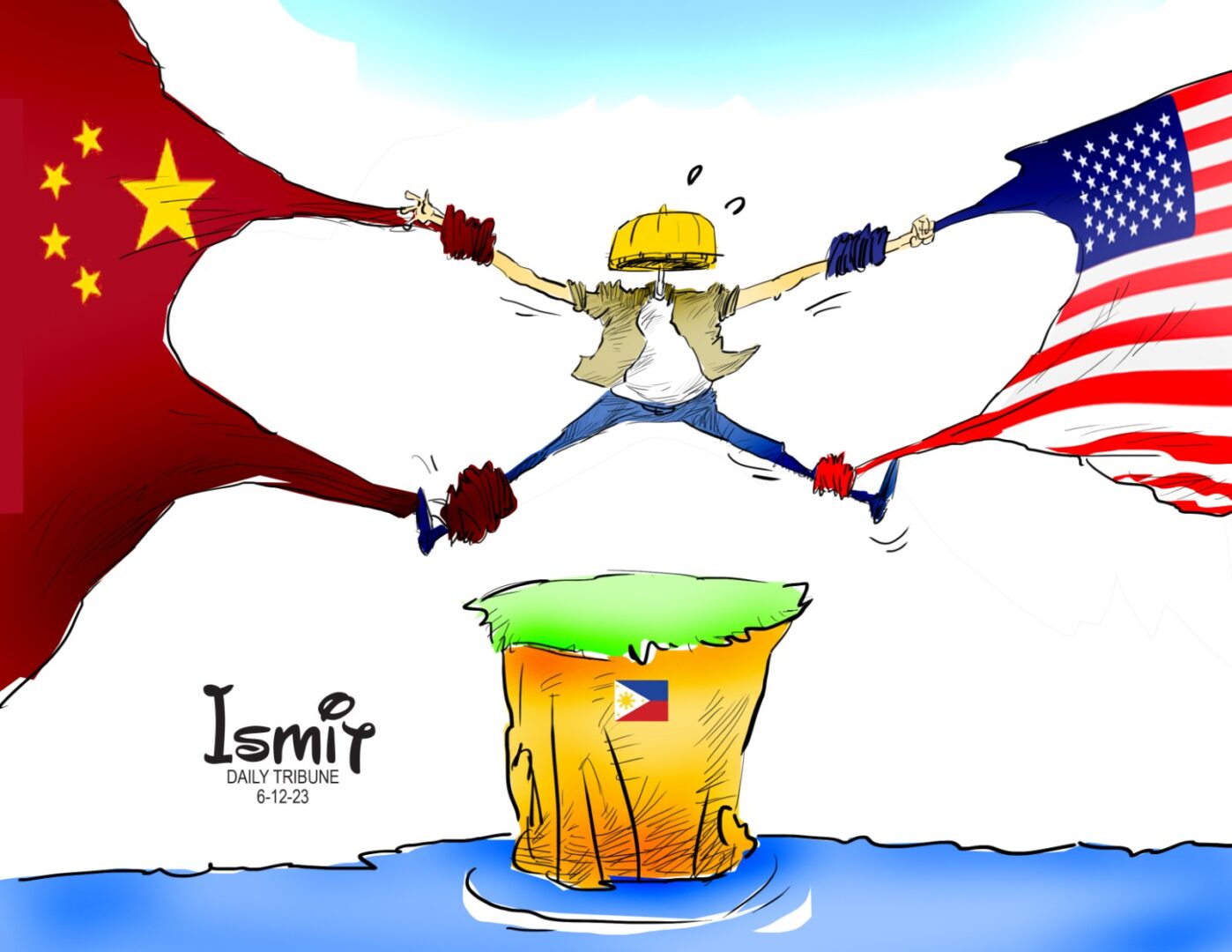While the United States and China face off in the West Philippine Sea, the balanced diplomatic policy of President Ferdinand “Bongbong” Marcos Jr. enables him to keep the lines open to both superpowers.
The Philippines has a “traditional” alliance with the United States imbued, as a former colony, with a cultural affinity that had resulted in deep relations.
Both countries share experiences in history, primarily in World War 2 where the commitments of both countries to defend each other emanated.
Former President Rodrigo Duterte tried to deviate from the norm and sought closer relations with China while asserting that the Philippines should not be subservient to the Americans, which was a track that showed success but Beijing fell short of its commitments.
A more pragmatic tack was taken by President Ferdinand “Bongbong” Marcos Jr. which is gaining recognition as the right approach with China and the United States.
The country has resumed its normal relations with the US while BBM works for deeper economic and diplomatic relations with the mainland.
The direction President Marcos has taken is meant to prove to the two superpowers that it is in the best interest of the Philippines that its relations remain strong and balanced with all countries.
The US helps with military modernization, while both countries maintain assistance with various development projects, mainly infrastructure.
The country’s role in the volatile West Philippine Sea issue is then relegated to the background.
The Philippines has the international community behind it as a result of the Permanent Court of Arbitration ruling which, even as it avoided settling the territorial claim, favored the Philippines in terms of the exercise of maritime rights.
The 2016 arbitral award significantly invalidated the nine-dash line claim of China on the West Philippine Sea.
Enforcing the ruling is difficult since China did not recognize the proceeding but the importance of the decision has emerged in terms of being a reference of countries in addressing the incursions in the West Philippine Sea.
Elbridge Colby, former Pentagon Deputy Assistant Secretary and co-founder of the think tank Marathon Initiative, said in a recent forum that the Philippines is “on the right track in building up its defense capabilities.”
Building such capabilities will “blunt” potential aggressions in the region, he added.
Colby, who engineered the United States 2018 National Defense Strategy, said, “The Chinese are not going to take your diplomacy seriously if you’re operating from a position of weakness; they take it seriously if it’s backed by force that they don’t think they can mess around.”
The twin moves of President Marcos to strengthen defense capabilities through the long-held pacts with the US while modernizing the Armed Forces of the Philippines have become a cornerstone of the defense strategy in deterring maritime aggression.
Colby underlined the importance of effective deterrence which is meant to avoid the escalation of conflict in the region.
Defense Secretary Gilbert Teodoro is firm in asserting the position of the country to be independent of the superpowers as it tracks its course amid the heightened geopolitical tensions in the region.
President Marcos added that he will not allow provocative actions by any country nor allow the Philippines to become a staging post for any kind of military action.
The position of strength comes from the ability of the nation to express what it wants within its international rights that other countries should learn to respect.
